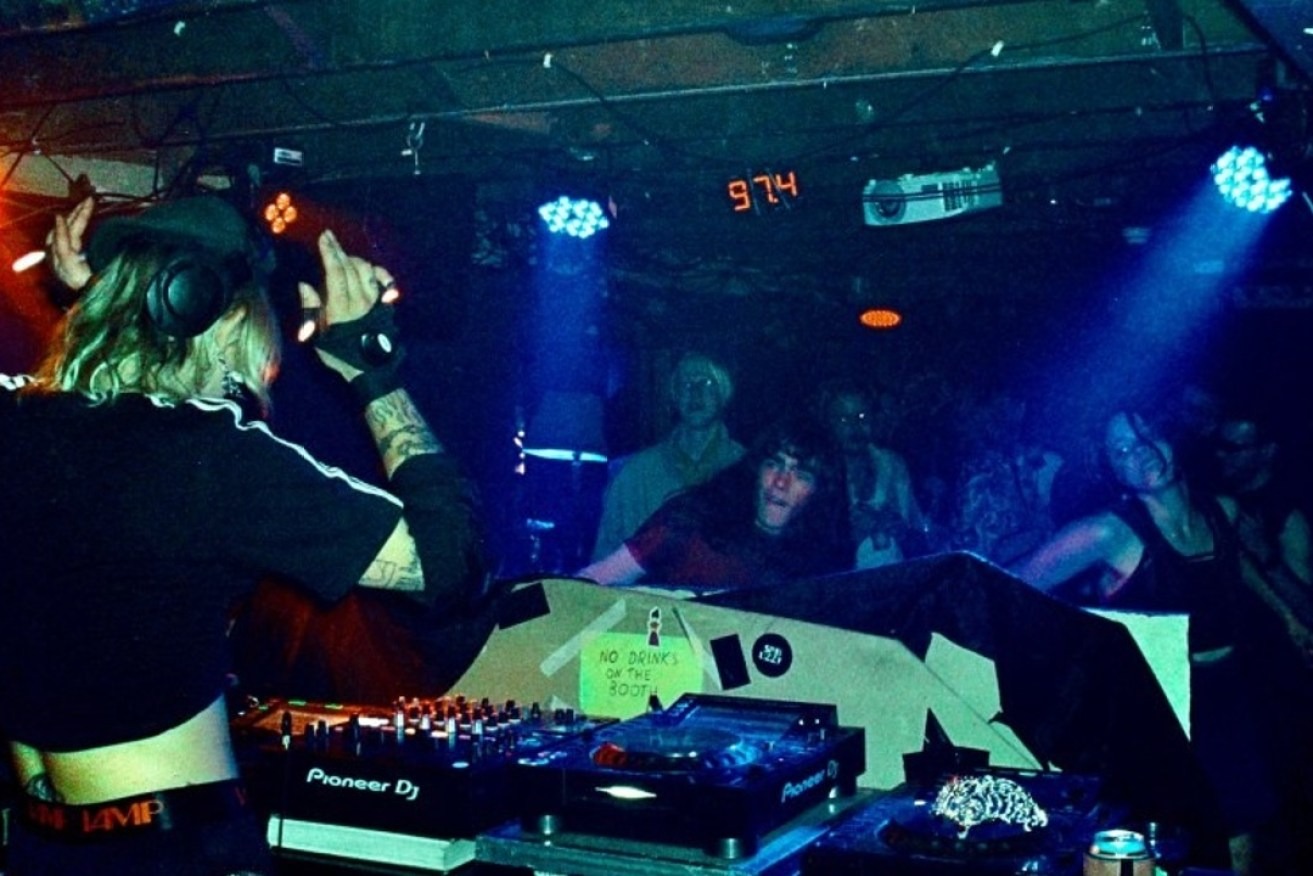The real value of Adelaide’s live music venues
Banding together as a community to publicly own live music venues threatened by soaring rents and building values can help Adelaide lives up to its UNESCO City of Music title, argues Sam Whiting.

Photo: Ancient World is struggling for survival and three other Hindley St music venues closed before Christmas. Photo: Emerald
On January 12th, the South Australian government announced a further $850,000 in support funding for the small venue sector with the See It LIVE Music Activation Fund, delivered through the government’s Music Development Office.
This comes after the recent closure of Adelaide venues, Enigma Bar and Fat Controller, and follows increased advocacy from the recently founded Independent Live Venues Alliance (ILVA), which includes a host of small, dedicated venues across SA, many of which are struggling in the current economic climate.
While this funding is a lifeline when audience numbers are dropping due to cost-of-living pressures and while the Covid-19 pandemic continues to cast a shadow across the entertainment sector, governments, policymakers, and industry stakeholders are eventually going to have to do more than throw money at the problem to save our small live music venues.
This is because we are facing a catastrophic shift in the way in which small venues and live music are valued and engaged with in Australian cities, all of which is pointing towards an increasing inevitability: market failure.
A compounding set of problems have made it almost impossible to run a small, dedicated live music venue as a commercial enterprise in our major cities.
These problems include rocketing public liability insurance, a profound dip in audiences for small local gigs (while audiences for festivals and larger performances remain high), many skilled workers leaving the sector, and squeezing labour costs, inflation and high energy prices. And last but not least – a fifth wave of global gentrification, driven by the hyper-financialisation of property markets and a policy environment that treats much of our built environment as assets rather than public infrastructure.
This last problem is possibly the least discussed when it comes to protecting our live music and entertainment sector, as gentrification is often seen as an inevitability rather than a policy choice. However, such questions came to the fore when the iconic Tote Hotel in Collingwood went up for sale last year, much to the dismay of Melbourne’s live music community.
Having already been ‘saved’ before, The Tote was the subject of another public campaign, but this time the focus was fundraising aimed at crowdsourcing a subsidy for the $6.65million asking price. Driven by the owners of North Melbourne’s dedicated bandroom The Last Chance Rock and Roll Bar, who had already fronted half the cash, the community chipped in a whopping $3m to assist with the purchase, on the back of a promise to place the freehold to The Tote into a charitable trust.
Such a dramatic intervention from the community in the sale of a valuable property demonstrates that the live music community will go to unprecedented lengths to protect these venues, but also that the true value of these spaces can not be reduced to the value of an asset.
Our property market treats much of our built environment as a class of assets, which has contributed to the current property and housing crisis. Those of us trying to or having recently entered the housing market know this all too well. In the case of small live music venues, what the current crisis has done is not just dramatically increase rents, including those for hospitality and entertainment venues, but also increased the market value of these spaces, making them more attractive assets.
Live music venues simply cannot compete with this overly financialised property market, as they serve a role as public and community spaces that provide what economists would call ‘positive externalities’ and what us normal humans would call ‘social cohesion’ and a sense of belonging, as well as acting as platforms for emergent talent.
These benefits go beyond a venue’s bottom line. However, none of this is measured when calculating the real estate value of a venue’s freehold.
This has led to a situation in which running small, dedicated live music venues as commercial businesses has become almost untenable in major Australian cities. However, faced with a similar crisis, the example of the UK’s Music Venue Trust (MVT) may offer some solutions.
A registered charity, the Music Venue Trust have removed the profit-motive from running live music spaces altogether, focussing their efforts on collectivising not-for-profit and/or co-operatively owned venue spaces. A particular innovation of MVT is Music Venue Properties; a collective fund financed by community shares, which has raised over £2.3m towards purchasing the freeholds for nine grassroots music venues. Socialising the risk of venue operation through the collective purchase of freeholds alleviates a substantial barrier to long-term financial sustainability for venues.
By sharing the cost associated with running a venue, these not-for-profit venues can funnel more revenue towards increasing overheads, but also the workers and musicians’ that fill these spaces with life.
Such community initiatives, as well as publicly owned and/or run live music venues – France has a strong ecosystem of publicly owned venue spaces, run, and administered by local and regional city governments – may be the only antidote to the small venue sector’s impending market failure.
Dr Sam Whiting is Lecturer in Creative Industries at the University of South Australia and author of Small Venues: Precarity, Vibrancy and Live Music.




